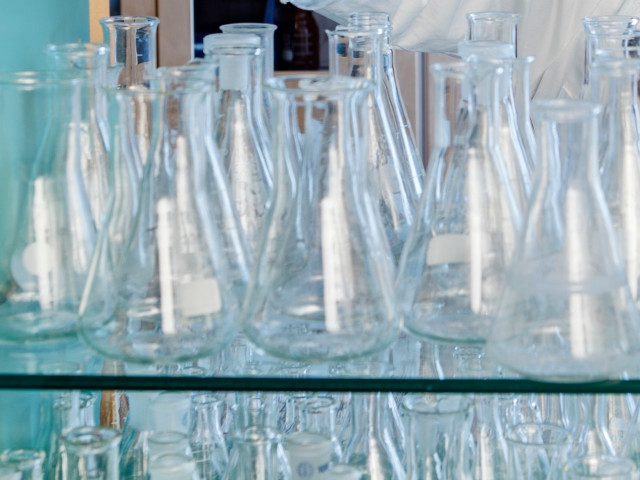- The chemical tools for work in water chemistry
- An overview concepts and theories in water chemistry
- Experience of practical field and laboratory work
- Experience of work within one area of water and water treatment such as tap water, waste sewage, natural resources, agricultural environment
KH1400 Water Chemistry 7.5 credits
This course has been discontinued.
Decision to discontinue this course:
No information inserted
The course gives a survey of current topics related to water quality and water resources with applications of basic chemistry to relevant problems.
Information per course offering
Course offerings are missing for current or upcoming semesters.
Course syllabus as PDF
Please note: all information from the Course syllabus is available on this page in an accessible format.
Course syllabus KH1400 (Spring 2011–)Content and learning outcomes
Course contents
Intended learning outcomes
The course gives a basic understanding of the chemical procedures in the aquatic environment and applications to natural waters and chemical technical systems.
After having completed the course, the students will be able to:
- Describe chemical processes in aquatic environments
- Apply mathematical models to treat transport, equilibrium and kinetics
- Describe the chemistry of the atmosphere
- List the most important soil processes
- Plan and execute a water chemistry project, including theoretical aspects and the practical performance
- Summarize the water chemistry for a separate field
- Deliver a report with high demands on time keeping, transparency and structure
Literature and preparations
Specific prerequisites
Completed upper secondary education including documented proficiency in Swedish corresponding to Swedish B and English corresponding to English A. For students who received/will receive their final school grades after 31 December 2009, there is an additional entry requirement for mathematics as follows: documented proficiency in mathematics corresponding to Mathematics A.
And the specific requirements of mathematics, physics and chemistry corresponding to Mathematics D, Physics B and Chemistry A.
Recommended prerequisites
KH1150 Engineering skills or equivalent
Literature
Aquatic Environmental Chemistry, Howard A G, Oxford University Press (1998)
Mäta vatten, Byden S, Larsson A-M, Olsson M, Göteborgs universitet (2003)
Examination and completion
Grading scale
Examination
- INL1 - Home Assignment, 1.5 credits, grading scale: P, F
- PRO1 - Projekt Work, 3.0 credits, grading scale: A, B, C, D, E, FX, F
- INL2 - Home Assignment, 1.5 credits, grading scale: P, F
- TEM1 - Theme, 1.5 credits, grading scale: P, F
Based on recommendation from KTH’s coordinator for disabilities, the examiner will decide how to adapt an examination for students with documented disability.
The examiner may apply another examination format when re-examining individual students.
If the course is discontinued, students may request to be examined during the following two academic years.
Other requirements for final grade
Project work (PRO1;3 cr)
Theme (TEM1;1,5 cr)
Home assignements (INL1;1,5 cr, INL2;1,5 cr)
Examiner
Ethical approach
- All members of a group are responsible for the group's work.
- In any assessment, every student shall honestly disclose any help received and sources used.
- In an oral assessment, every student shall be able to present and answer questions about the entire assignment and solution.
Further information
Course room in Canvas
Offered by
Main field of study
Education cycle
Supplementary information
Will replace 6D2940